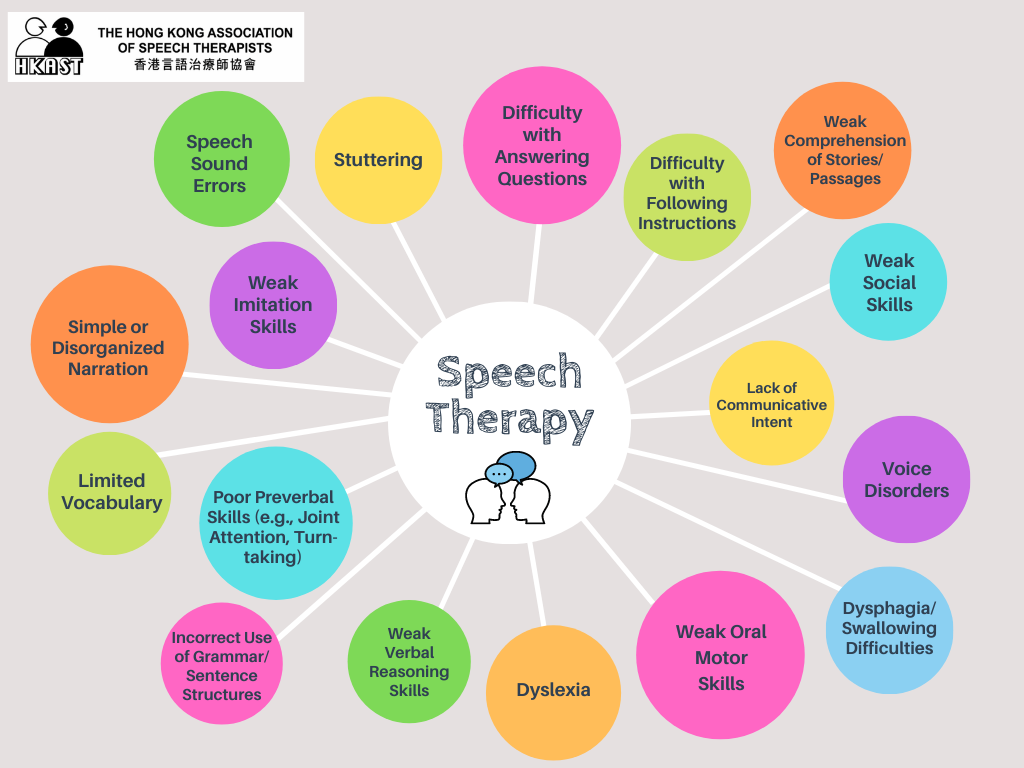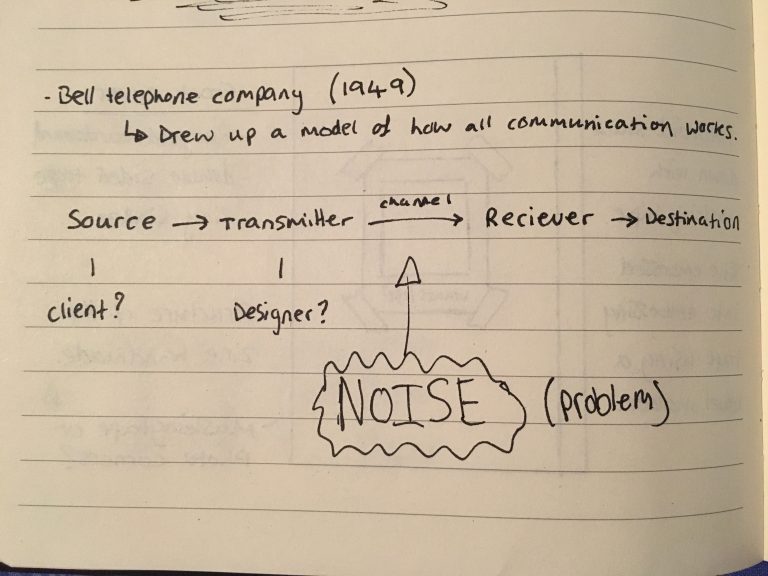What Is Speech Therapy
If you’ve ever wondered “what is speech therapy,” you’re in the right place! Speech therapy is a fascinating field that helps people improve their communication skills. Whether it’s trouble with speaking, understanding language, or pronunciation, speech therapists are experts in unlocking the power of words. So, let’s dive in and learn more about this amazing profession!
Speech therapy, also known as speech-language therapy, is all about helping individuals overcome challenges related to speech, language, and communication. Imagine finding it hard to express your thoughts, struggling to pronounce certain sounds, or having difficulty understanding what others say. That’s where speech therapists step in to assist. With their expert guidance, they provide personalized strategies and exercises to enhance communication abilities.
But speech therapy isn’t just about improving speech and language skills. It also encompasses other aspects such as voice control, fluency, and even swallowing difficulties. Whether someone is born with a speech disorder or their communication abilities are impacted by an accident or medical condition, speech therapists are there to support and guide them on their journey toward better communication. It’s truly a remarkable profession that changes lives one word at a time. So, are you ready to explore the world of speech therapy? Let’s get started!

What is Speech Therapy?
Speech therapy is a specialized therapy aimed at helping individuals overcome speech and language disorders. It involves the evaluation, diagnosis, and treatment of a range of communication difficulties, such as problems with articulation, fluency, voice, and language skills. Speech therapists, also known as speech-language pathologists, work with people of all ages, from infants to the elderly, who are experiencing challenges in their ability to speak, understand, and communicate effectively.
Speech therapy sessions are designed to address the unique needs of each individual. The therapist will use a variety of techniques and exercises to improve speech production, language comprehension, and overall communication skills. These may include articulation drills, language-building activities, voice therapy, and strategies to enhance fluency.
The Role of a Speech Therapist
A speech therapist plays a vital role in helping individuals overcome communication difficulties and achieve their full potential. They work closely with their clients to assess their abilities and develop personalized treatment plans. The therapist helps individuals develop the necessary skills and strategies to improve their speech clarity, vocabulary, sentence structure, and social communication abilities. Additionally, they may collaborate with other professionals, such as educators and psychologists, to provide a multi-disciplinary approach to treatment.
Speech therapists also provide guidance and support to individuals and their families, offering strategies to facilitate effective communication outside of therapy sessions. They may recommend specific techniques and tools to facilitate speech and language development, such as visual aids, communication boards, or assistive technology devices.
In addition to individual therapy sessions, speech therapists may conduct group therapy sessions to facilitate social interaction and communication skills in a supportive environment. These sessions can be particularly beneficial for individuals with social communication disorders, such as autism spectrum disorders, where interaction with peers is a key aspect of therapy.
The Benefits of Speech Therapy
Speech therapy offers a wide range of benefits for individuals with speech and language disorders. Some of the key benefits include:
- Improved Communication: The primary goal of speech therapy is to improve an individual’s ability to communicate effectively. By addressing the underlying difficulties and providing targeted interventions, speech therapy can help individuals express their thoughts, ideas, and needs more clearly.
- Enhanced Self-Confidence: Speech and language difficulties can often lead to feelings of frustration, embarrassment, and isolation. Through speech therapy, individuals can develop their communication skills and gain confidence in their ability to interact with others.
- Academic Success: Communication skills are closely linked to academic success. Speech therapy can help individuals improve their language skills, which in turn can enhance their reading, writing, and overall academic performance.
- Improved Social Skills: Effective communication is crucial for building relationships and participating in social activities. Speech therapy can help individuals develop the social skills necessary for successful interactions with peers, family members, and other social contexts.
Types of Speech Disorders
Speech disorders can manifest in various ways, and speech therapy aims to address each specific disorder. Some of the common types of speech disorders include:
- Articulation Disorders: Articulation disorders involve difficulties with producing speech sounds correctly. This can result in distorted or unclear speech.
- Fluency Disorders: Fluency disorders, such as stuttering, involve disruptions in the natural flow and rhythm of speech.
- Voice Disorders: Voice disorders involve abnormalities in pitch, loudness, or quality of the voice. This can result in hoarseness, breathiness, or a strained voice.
- Language Disorders: Language disorders refer to difficulties with understanding and using language. This can include challenges with vocabulary, grammar, sentence structure, and comprehension.
Speech Therapy Techniques
Speech therapists utilize a variety of techniques and interventions to help individuals overcome their communication difficulties. Some common techniques used in speech therapy include:
- Articulation Therapy: This therapy focuses on improving the ability to pronounce speech sounds correctly. It may involve exercises to strengthen the speech muscles, practice drills, and auditory discrimination activities.
- Language Interventions: Language interventions target the development of receptive and expressive language skills. This can include activities to improve vocabulary, sentence formation, and understanding of grammar rules.
- Fluency-Shaping Techniques: These techniques aim to improve fluency in individuals with stuttering or other fluency disorders. They may involve strategies such as slow and rhythmical speech, breathing exercises, and desensitization techniques.
- Voice Therapy: Voice therapy focuses on improving vocal quality, volume, and overall vocal health. This can involve vocal rest, vocal hygiene practices, vocal exercises, and techniques to reduce strain on the vocal cords.
Understanding the Importance of Early Intervention
Early intervention is crucial when it comes to speech and language disorders. Identifying and addressing these difficulties at an early age can significantly improve outcomes and minimize the long-term impact on an individual’s life. Early intervention allows speech therapists to provide targeted interventions and therapies during critical periods of development.
For infants and toddlers, speech therapy may focus on early language development, communication skills, and enhancing interactions with parents and caregivers. Speech therapists work closely with families to provide guidance and strategies that can be incorporated into daily routines and activities to promote language and communication skills.
For older children and adolescents, early intervention can help address speech and language difficulties that may impact their academic success and social interactions. Speech therapy can provide strategies to overcome challenges and improve overall communication abilities, fostering confidence and self-esteem in these individuals.
Speech Therapy for Adults
Speech therapy is not limited to children and adolescents; it can also greatly benefit adults. Some common reasons adults seek speech therapy include:
- Stroke or Brain Injury: Speech therapy can help individuals recover language and communication skills that may have been affected by a stroke or brain injury.
- Speech Disorders: Adults may seek therapy for articulation disorders, voice disorders, or fluency disorders that have persisted from childhood or developed later in life.
- Accent Modification: Speech therapy can assist individuals who wish to modify or reduce their accents to improve communication in professional or social settings.
- Communication Disorders: Adults with communication difficulties related to conditions such as Parkinson’s disease, multiple sclerosis, or dementia can benefit from speech therapy to maintain their speech abilities and improve overall communication.
Accessing Speech Therapy Services
If you or a loved one is experiencing speech or language difficulties, it is essential to seek professional help from a speech therapist. Speech therapy services are available in various settings, including schools, hospitals, rehabilitation centers, private practices, and community clinics.
To access speech therapy services, you can start by contacting your primary care physician, who can provide referrals and information about local speech therapy providers. Additionally, schools often have speech-language pathologists on staff who can evaluate and provide therapy for students with speech and language disorders.
Insurance coverage for speech therapy services may vary, so it is advisable to check with your insurance provider to understand the extent of coverage and any applicable co-pays or deductibles. There are also organizations and local clinics that offer reduced-cost or free speech therapy services for individuals who may have limited financial means.
Tips for Maximizing the Benefits of Speech Therapy
To make the most of speech therapy sessions, consider the following tips:
- Consistency: Attend therapy sessions regularly and follow through with any recommended practice exercises or activities at home.
- Communication with the Speech Therapist: Be open and honest about your goals, concerns, and progress. The therapist can tailor the treatment plan to best meet your individual needs.
- Practice Outside of Therapy: Incorporate speech and language exercises into daily routines and activities to reinforce skills learned in therapy.
- Engage in Supportive Activities: Participate in activities or support groups that provide opportunities to practice communication skills in a supportive and understanding environment.
- Patience and Persistence: Progress in speech therapy may take time, so it is essential to be patient and persistent in your efforts. Celebrate small wins along the way and keep a positive mindset.
Conclusion
Speech therapy is a valuable and impactful intervention for individuals with speech and language disorders. It helps individuals overcome communication challenges, enhance their quality of life, and achieve their full potential. Through personalized treatment plans and targeted interventions, speech therapists play a crucial role in improving speech clarity, language skills, and overall communication abilities. Early intervention is particularly important, as it can significantly improve outcomes and minimize the long-term impact of speech and language difficulties. If you or a loved one is experiencing speech difficulties, seeking the assistance of a speech therapist can provide the support and guidance necessary for effective communication.
Key Takeaways: What is Speech Therapy?
- Speech therapy helps people improve their ability to communicate.
- It focuses on improving speech sounds, language skills, and social communication.
- Speech therapists use fun and engaging activities to make therapy enjoyable.
- Sessions might include practicing sounds, learning new words, or playing interactive games.
- Speech therapy is important for people with speech and language disorders.
Frequently Asked Questions
Welcome to our FAQ section on speech therapy! Here, we’ll address some common questions related to this topic to provide you with a better understanding. Whether you’re curious about speech therapy for yourself or someone you know, we’ve got you covered. Let’s get started!
Q: How can speech therapy help improve communication skills?
A: Speech therapy is a specialized approach that helps individuals improve their communication skills. Through a combination of techniques, exercises, and personalized strategies, speech therapists work with people of all ages to address speech and language disorders. They focus on enhancing not just speech, but also language comprehension, pronunciation, fluency, and social language skills. By tailoring therapy sessions to the individual’s specific needs, speech therapists help people develop effective communication skills and build confidence in expressing themselves.
The process of speech therapy typically involves various activities and exercises that target specific areas of difficulty. These may include articulation exercises to improve pronunciation and clarity, language drills to enhance vocabulary and grammar, and communication strategies to facilitate effective interaction. Overall, speech therapy aims to enable individuals to express themselves clearly and confidently, enhancing their overall communicative abilities in both social and professional settings.
Q: Who can benefit from speech therapy?
A: Speech therapy can benefit individuals of all ages who are experiencing difficulties with their communication skills. It is commonly associated with children who have speech and language disorders, such as articulation difficulties or stuttering. However, speech therapy is not limited to children. Adults who have suffered from strokes or traumatic brain injuries often find speech therapy essential in regaining their communication abilities.
Speech therapy also assists individuals with conditions such as autism spectrum disorders, developmental delays, hearing impairments, and cognitive impairments, among others. Moreover, individuals facing challenges with non-verbal communication, such as body language and social cues, can also benefit from speech therapy. Ultimately, speech therapy is a versatile and invaluable resource for anyone who desires to improve their communication skills and enhance their quality of life.
Q: How do I know if speech therapy is needed for my child?
A: If you have concerns about your child’s speech and language development, it’s essential to consult a qualified speech-language pathologist (SLP) for an evaluation. While every child develops at their own pace, certain signs may indicate the need for speech therapy. These signs include difficulty being understood by others, limited vocabulary for their age, struggles with forming sounds or words, disfluency (such as stuttering), and challenges with following directions or understanding others.
A speech-language pathologist can assess your child’s communication skills, identify any areas of concern, and recommend appropriate interventions if necessary. Early intervention is particularly crucial, as it can have a positive impact on a child’s speech and language development. By seeking an evaluation from an SLP, you can gain clarity on your child’s communication abilities and make informed decisions about their potential need for speech therapy.
Q: Is speech therapy only focused on improving speech?
A: While speech therapy primarily addresses speech-related concerns, it encompasses a wide range of communication skills beyond just speech. Speech therapists also work on aspects such as language comprehension, expressive language (forming sentences and expressing thoughts), social language (pragmatics), and overall communication effectiveness.
Speech therapy aims to enhance an individual’s ability to communicate effectively, both verbally and non-verbally. It could involve improving language skills, understanding and using social cues, enhancing fluency and clarity of speech, and developing appropriate communication strategies for different situations. Therefore, speech therapy encompasses a holistic approach to communication development, ensuring individuals can express themselves clearly and confidently in various contexts.
Q: How long does speech therapy typically last?
A: The duration of speech therapy can vary depending on several factors, including the individual’s specific needs, goals, and the severity of the communication disorder. Some people may require only a few months of therapy, while others may benefit from ongoing sessions over an extended period.
A speech therapist will conduct an evaluation to determine the appropriate course of therapy and establish realistic goals. The frequency and duration of therapy sessions will also be personalized based on the individual’s needs. It’s important to remember that progress in communication skills is a journey, and the length of therapy may vary from person to person. Regular communication with the speech therapist and consistent participation in therapy activities will contribute to the overall success and progress of the individual’s communication abilities.
Summary
Speech therapy is a way to help people who have trouble speaking clearly or understanding others. It involves working with a speech therapist who helps improve communication skills through exercises and techniques.
By targeting specific areas like pronunciation or language development, speech therapy aims to make communication easier and more effective. It can benefit people of all ages, from children learning to speak to adults recovering from a stroke or injury. With the help of a speech therapist, individuals can gain confidence and improve their ability to express themselves clearly.


